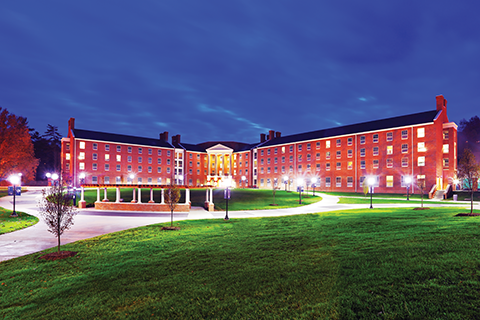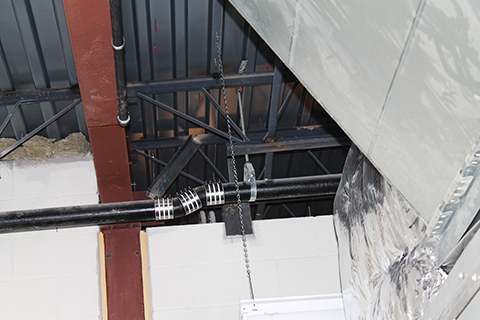
Further, local government standards may have stringent requirements for school building construction. Ohio has a set of standards intended to ensure quality and consistency in public education facilities. These standards strive to address many factors, ranging from student health and wellness to environmental sustainability. Working to meet such a diverse set of goals, however, can complicate the design process.
Ohio also leads the nation in the construction of green schools, with more than 150 Leadership in Energy and Environmental Design (LEED)-certified public schools. State-funded schools are, in fact, required to attain at least LEED Silver certification, with projects being encouraged to attain Gold. Considering schools have an important role to play in the health and wellness of their student bodies, earning the LEED points awarded for daylighting is a priority.
According to the Rensselaer Polytechnic Institute, research funded in part by the U.S. Green Building Council (USGBC) and a grant from a Trans-National Institutes of Health Genes, Environment and Health Initiative (NIH-GEI) quantified the impact of daylight design on students’ well-being and performance in K−12 schools. Researchers also investigated the underlying biological mechanisms involved in the students’ response to natural light.
Mariana Figueiro, program director of Rensselaer’s Lighting Research Center (LRC), says the study found “today’s rigid school schedules requiring teenagers to be in class early in the morning cause them to miss the essential morning light needed to stimulate the circadian system, which regulates body temperature, alertness, appetite, hormones and sleep patterns.” Subsequent to the research, LRC developed a daylighting design guide that “balances the photobiological benefits of daylighting with well-known daylight design techniques that can be applied in schools,” according to the news release.
As ample natural light can reduce dependence on artificial lighting, designing in daylighting also helps schools meet the state’s stated preference LEED points be earned in the Energy and Atmosphere (EA) category. According to the U.S. Green Building Council (USGBC), the daylighting requirement as defined in LEED v4 is “to connect building occupants with the outdoors, reinforce circadian rhythms, and reduce the use of electrical lighting by introducing daylight into the space.”

To meet this standard, as well as to enhance the aesthetic quality of a school building’s façade, architects frequently design large window openings. As windows get bigger, however, the lintels required to span them also get bigger. So, while a mason can easily lift and set a steel lintel in
a small window opening, placing a larger lintel requires the intervention of a steel erector. Lintels can become so large steel columns are needed at the window jambs, which also requires a steel erector.
Again, the solution is to consider the building material’s limitations while still in the project’s design phase—it is sometimes possible to obtain the desired visual effect and daylighting goals by separating a design scheme’s large window openings into smaller, separate windows that have masonry piers between them to provide structural support.





I completely agree with you that masonry is the ideal form of construction for educational buildings. It often is more durable than other types of building materials and is mold and fire resistant. I personally like the look of brick. It reminds me of my grandparents old house and many fond memories there.